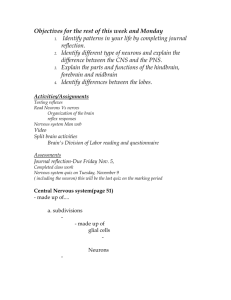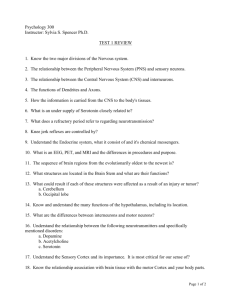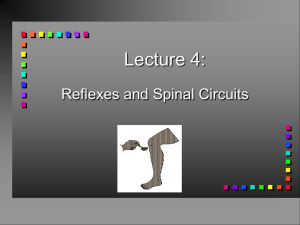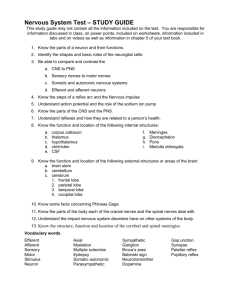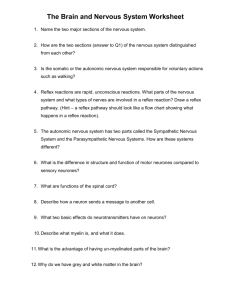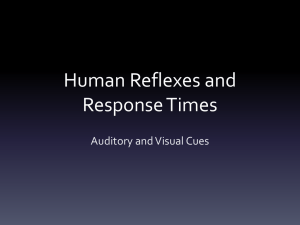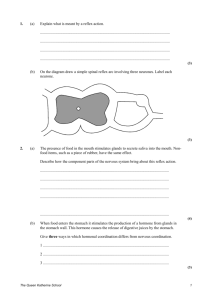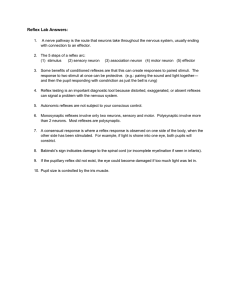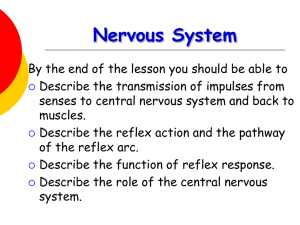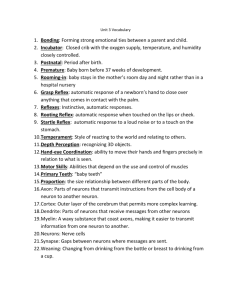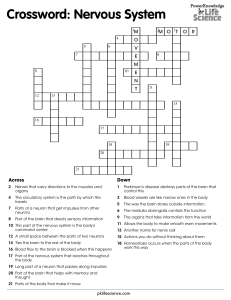File - MyScienceClassInfo
advertisement
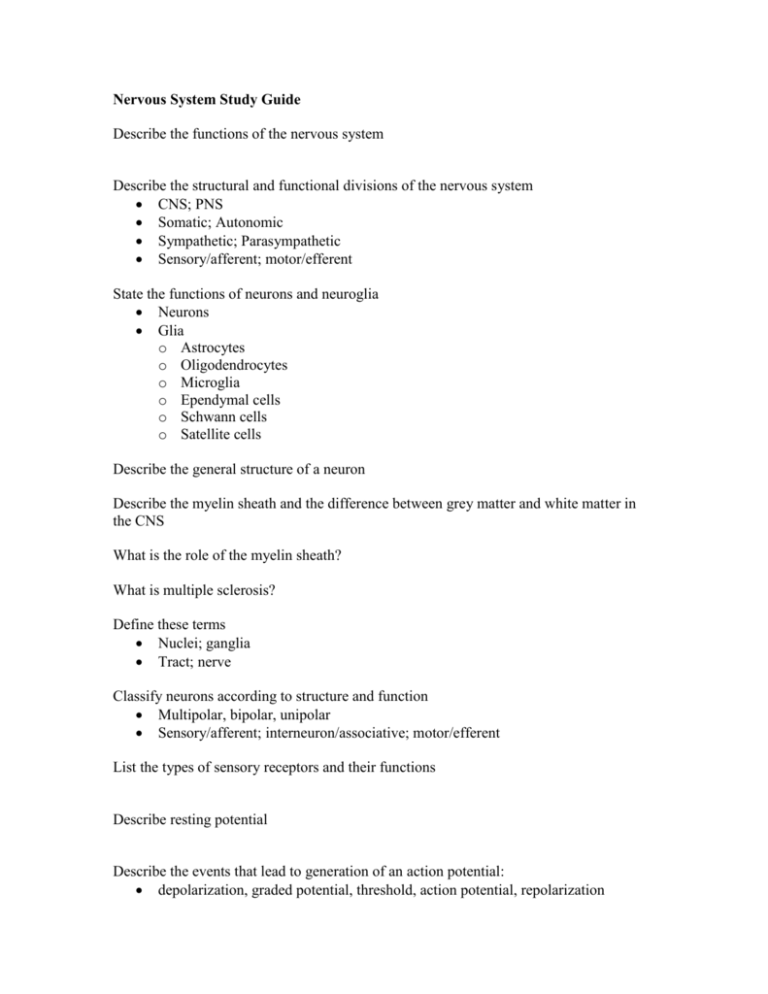
Nervous System Study Guide Describe the functions of the nervous system Describe the structural and functional divisions of the nervous system CNS; PNS Somatic; Autonomic Sympathetic; Parasympathetic Sensory/afferent; motor/efferent State the functions of neurons and neuroglia Neurons Glia o Astrocytes o Oligodendrocytes o Microglia o Ependymal cells o Schwann cells o Satellite cells Describe the general structure of a neuron Describe the myelin sheath and the difference between grey matter and white matter in the CNS What is the role of the myelin sheath? What is multiple sclerosis? Define these terms Nuclei; ganglia Tract; nerve Classify neurons according to structure and function Multipolar, bipolar, unipolar Sensory/afferent; interneuron/associative; motor/efferent List the types of sensory receptors and their functions Describe resting potential Describe the events that lead to generation of an action potential: depolarization, graded potential, threshold, action potential, repolarization Explain how neurons communicate at chemical synapse Define: Reflex Reflex arc Somatic reflex Autonomic reflex Describe a typical 5 element reflex arc Identify the major regions of the brain and the functions of their subdivisions (see table 7.1 page 241) Describe which portions of the cerebral cortex are motor vs. sensory and the significance of the homunculi Describe the protections of the brain: Skull Meninges CSF (know where the 4 ventricles are located and how CSF is produced) Blood-brain barrier Discriminate between these homeostatic imbalances: Meningitis Hydrocephalus Concussion Contusion Cerebrovascular accident Transient ischemic attack Alzheimers Parkinsons Huntington’s disease Describe the structure and function of the spinal cord Horns Columns Central canal Dorsal root Ventral root Describe the structure of a nerve 31 pairs of spinal nerves 12 pairs of cranial nerves Have general knowledge of the regions served by the plexuses: o Cervical o Brachial o Lumbar o sacral Contrast the effects of the parasympathetic and sympathetic nervous systems on the heart, lungs, digestive system and blood vessels
